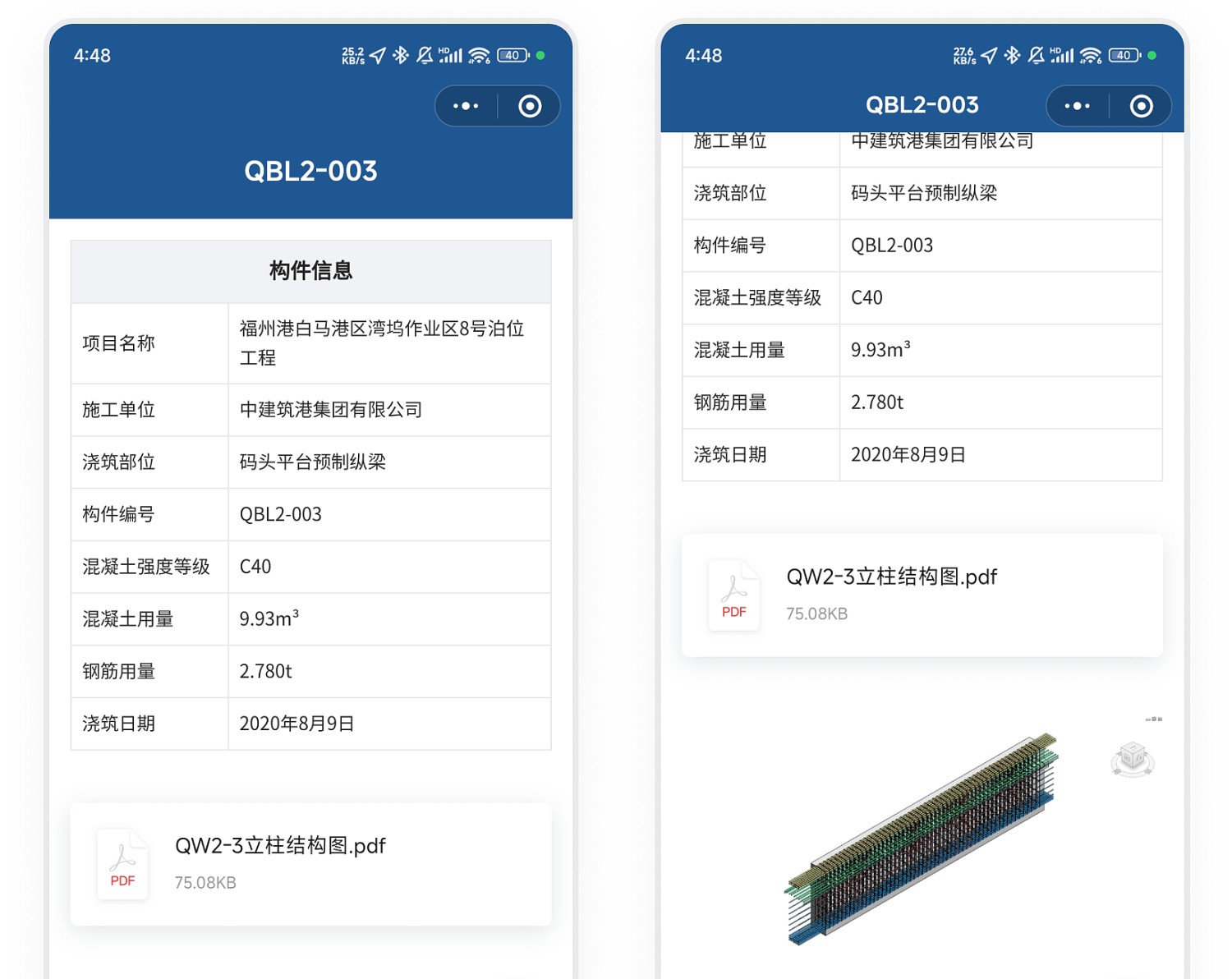Component Identification
QR codes serve as the ID cards for prefabricated components, replacing traditional signage. Simply scan with a mobile phone to view specific information such as component dimensions, production time, manufacturing process, component strength, production station, etc.
Basic Information
- Monthly Installations: 7858
- Monthly Visits: 23149
- Original: https://cli.im/template/detail/45460887
Case Label Images







Usage Instructions
1. Problems Solved
Traditional component identification signage methods have the following issues:
- Limited Information Capacity: Restricted by the physical space of the sign, only limited text and graphic information can be displayed, unable to provide detailed data or dynamic content.
- High Update and Maintenance Costs: When information changes, signs need to be remade and replaced, which is time-consuming and costly.
- Poor Interactivity: Static signs lack interaction with users, who can only passively receive information without the ability to provide feedback.
- Prone to Damage and Loss: Physical signs are easily affected by weather, vandalism, and other factors, leading to missing or illegible information.
QR Code Solution Applied:
- Rich Information Capacity: Beyond supporting text and images, QR codes can link to webpages, videos, audio, and other content formats, expanding the depth and breadth of information.
- Low Cost and Easy Updates: Using CaoLiao QR Codes, information can be updated without replacing the physical sign, reducing long-term operational costs.
- Enhanced Interactive Experience: Users can scan the QR code to provide feedback, improving user experience and engagement.
- High Durability: The QR code itself is digital information, less susceptible to physical damage. Even if the sign surface is damaged, it remains functional as long as the QR code portion is clear.
- Data Analysis and Tracking: Feedback information submitted by users via scanning is saved in your account for review at any time.
This template is suitable for creating component identification signage and can be modified according to your component content. It is recommended to use the bulk QR codes generation feature to achieve one code per component, input component information, and batch generate component identification signs.
2. Scan to View All Basic Component Information
One Code per Component: Each component corresponds to a unique QR code. Scanning it allows viewing of the component's basic information, images, structural files, and other content.
Note: Forms can be linked within the QR code to record inspection situations. Learn about forms features

3. Efficient Bulk QR Code Generation
Upload basic component information to batch generate component labels:
- Upload Excel to Generate Codes: If you already have an Excel file with a component information list, you can directly upload it to generate codes, creating one sub-code per row for component labels.
- Bulk Generate Codes via Online Spreadsheet: Fill in data directly in the web-based spreadsheet to generate codes, creating one sub-code per row for component labels.
Note:
- Images and files support batch upload. View Tutorial
- Video, Audio, and other content: Only supports uploading corresponding audio/video content individually after generating the sub-codes.
4. Label Download and Printing
After generating the QR code labels, you can download and print them in bulk.
Recommended Materials:
- For indoor use, it is recommended to choose PVC adhesive or Matte Silver adhesive materials to ensure the labels are durable and clear.
- If the equipment is used outdoors or in special environments, it is recommended to choose PVC hard card/Acrylic/Stainless steel materials.
View More Material Recommendations

5. Frequently Asked Questions
1. Is it free to use?
Answer: The template is free to use and supports customization of content and display styles.
If you need to upload audio/video or large amounts of text and image content, it is recommended to choose the Basic version. During the paid period of the Basic version, 1GB of high-definition, watermark-free storage space is provided; audio/video content can be played long-term, and the CaoLiao logo can be hidden. View Version Details
2. How long can the generated QR code be used?
Answer: QR codes generated by CaoLiao are valid long-term, with unlimited scans and users. You can use them with confidence.
3. How to edit the label style?
Answer: After generating the bulk template, you can change the style or edit fields in the Design Library to meet practical application needs. View Tutorial
4. If I can't find a suitable style in the Design Library, can I customize it?
Answer: Custom modification of label styles is not currently supported. The CaoLiao Design Library offers 100+ styles to choose from. If a suitable style is not found, you can export the data and use third-party software for layout design. View Tutorial
Related Customer Cases
[CSCEC Shenzhen Decoration: "One Machine, One File", improving the safety management model for large mechanical equipment and facilities](https://cli.im/client/detail/1740 "CSCEC Shenzhen Decoration: "One Machine, One File", improving the safety management model for large mechanical equipment and facilities")
[China Railway 17th Bureau Group: Entering the era of "QR code" refined management](https://cli.im/client/detail/1734 " China Railway 17th Bureau Group: Entering the era of "QR code" refined management")